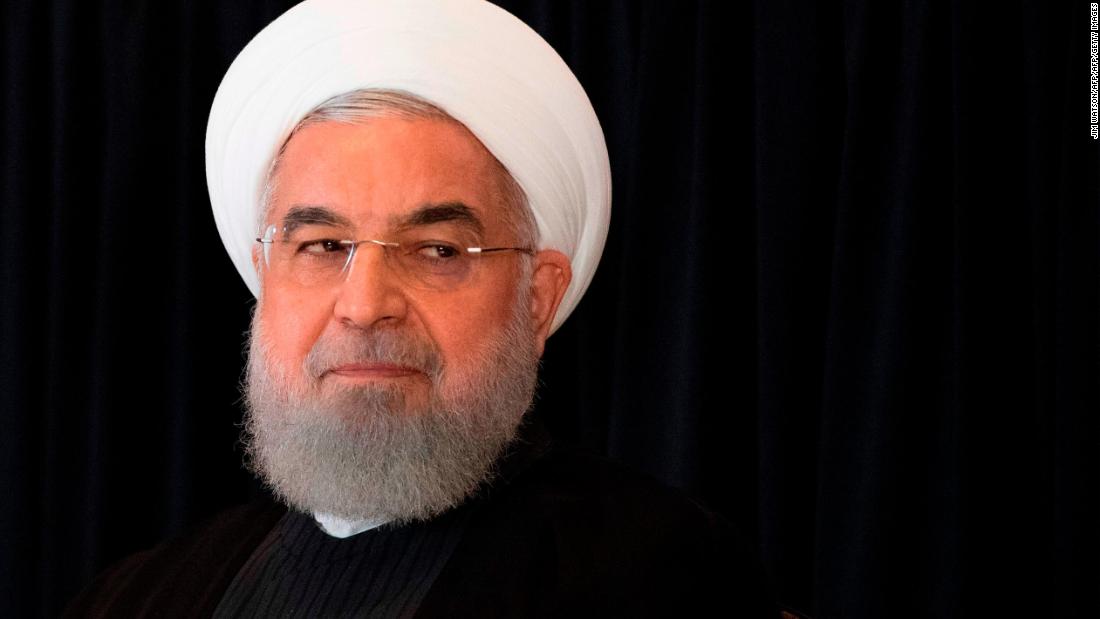
The oil field in southwest Iran stretches over an area of 2,400 sq km (about 1,491 square miles) in the Khuzestan province and is around 80 meters (262 feet) deep, according to the Iranian leader.
It would be the country's second largest oil field, behind one in Ahvaz containing an estimated 65 billion barrels.
"We have discovered a new big oil field with 53 billion barrels of reserves," Rouhani said in a speech Sunday in the city of Yazd, according to the semi-official Mehr news agency.
"This is a small gift by the government to the people of Iran," he added, according to Agence France-Presse (AFP).
Iran, which is a founding member of the Organization of the Petroleum Exporting Countries (OPEC), currently has estimated proven crude oil reserves of 155.6 billion barrels, according to energy giant BP. The new discoveries would add about 34% to its total reserves.
The US Energy Information Administration (EIA) ranks Iran as the world's fourth-largest holder of oil reserves and the second-largest holder of gas reserves.
If the size of the new oil reserves is proven to be accurate, it would lift the country to third place, just below its regional foe Saudi Arabia.
Last month, Iran announced the discovery of a natural gas reserve that could create $40 billion in revenue. Rouhani said this latest discovery could boost the country's reserves by about a third.
The discoveries would be a lifeline for Iran's economy, which has suffered significantly under a series of US sanctions over the past year since the US withdrew from the Iran nuclear deal.
Rouhani attacked the US during his speech and said Iran is succeeding despite the punitive sanctions.
"We announce to America today that we are a rich nation, and despite your enmity and cruel sanctions, Iranian oil industry workers and engineers discovered this great oil field," he said, according to AFP.
It still remains to be seen whether Iran will benefit from the oil, as it has struggled to sell its fossil fuels in the wake of the US's unilateral sanctions.
In May, the US ended waivers that allowed eight countries to continue purchasing Iranian oil, significantly restricting the country's oil exports and causing, in part, a sharp economic downturn. This has seen Iranian currency plummet in value while sending inflation skywards.
The International Monetary Fund (IMF) announced in October that the Iranian economy is set to contract by 9.5% this year, down from a previous estimate of 6%.
Other signatories of the 2015 Iran nuclear deal -- Britain, France, Germany, China and Russia -- have been seeking to save the treaty and offer a means for Iran to continue selling its oil, but with little success.
The deal had lifted crippling economic sanctions in exchange for Iran limiting its nuclear activities and allowing international inspectors to supervise its nuclear facilities.
Tension has mounted in the Persian Gulf following the reimplementation of sanctions, with a number of attacks on international oil tankers and Saudi Arabian oil facilities being blamed on Iran. Iran denied involvement in all of the incidents but admitted seizing a British-flagged tanker, Stena Impero, after an Iranian tanker was seized on suspicion of transporting oil to Syria.
from Hacker News https://ift.tt/2NYFT4o
No comments:
Post a Comment
Note: Only a member of this blog may post a comment.